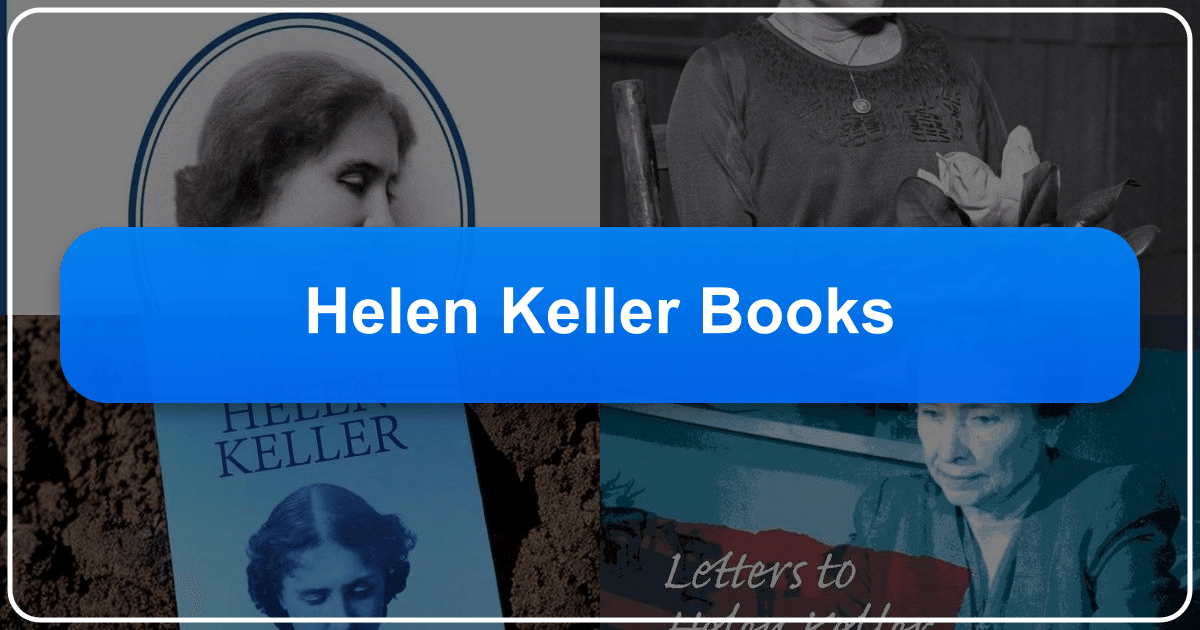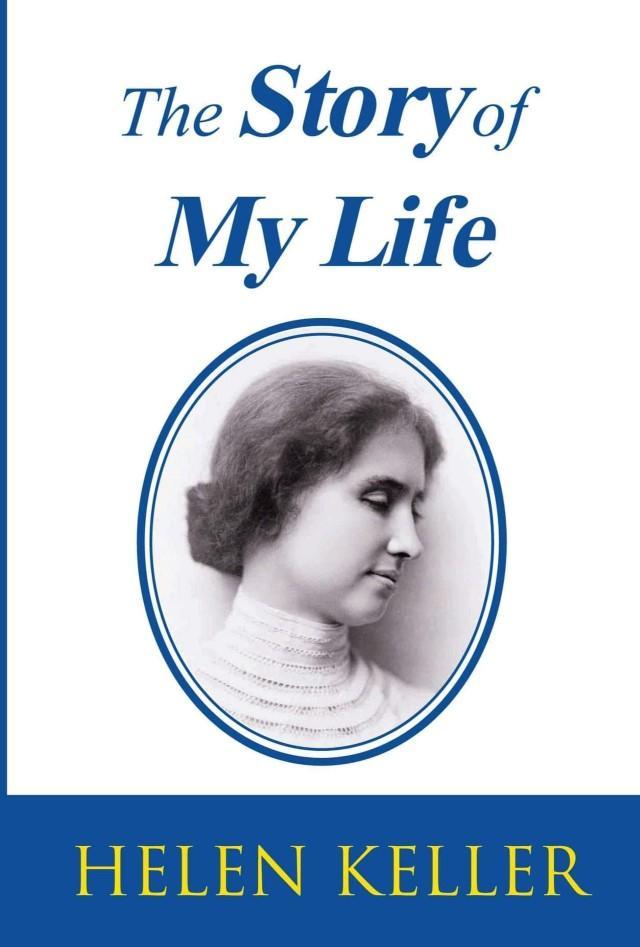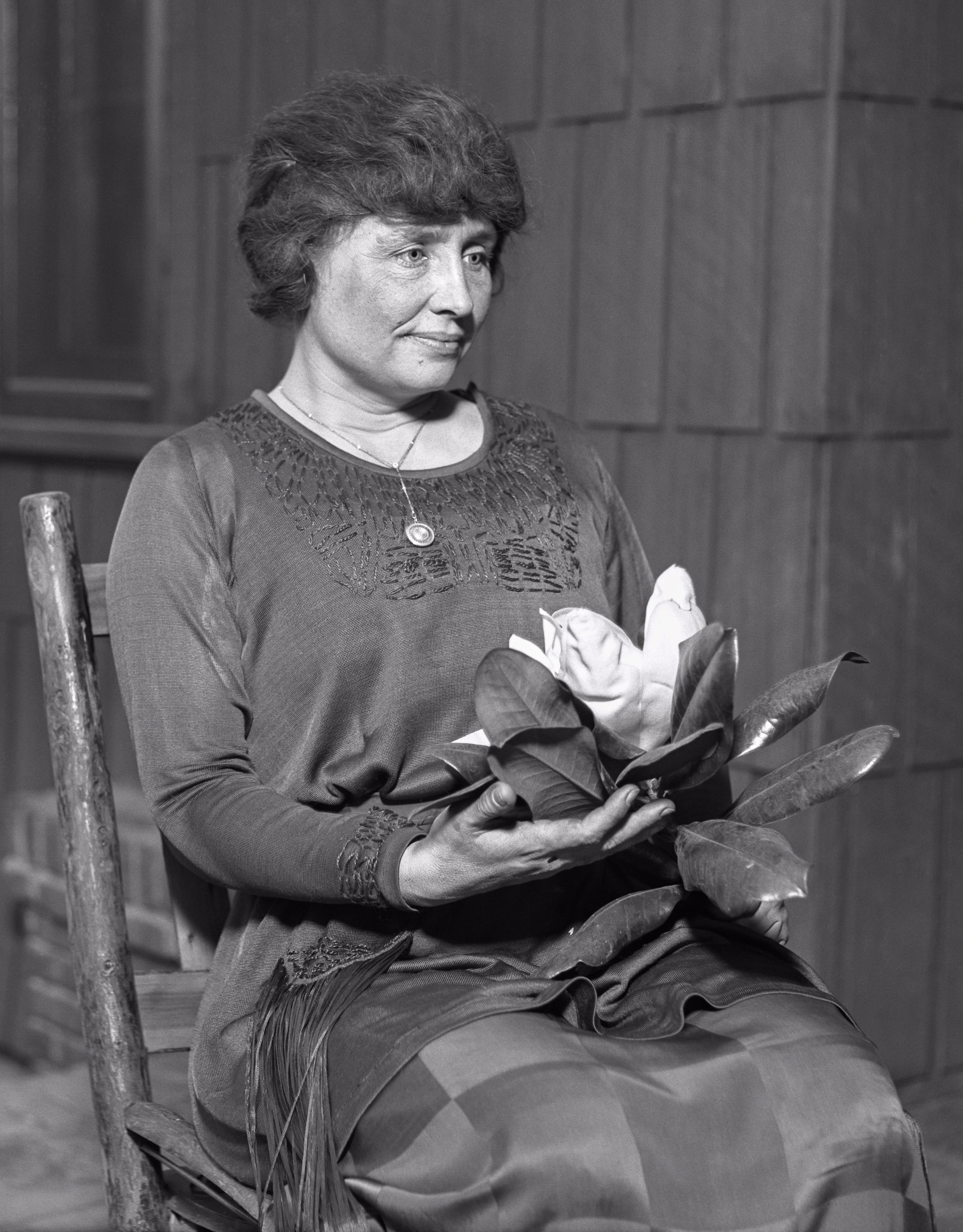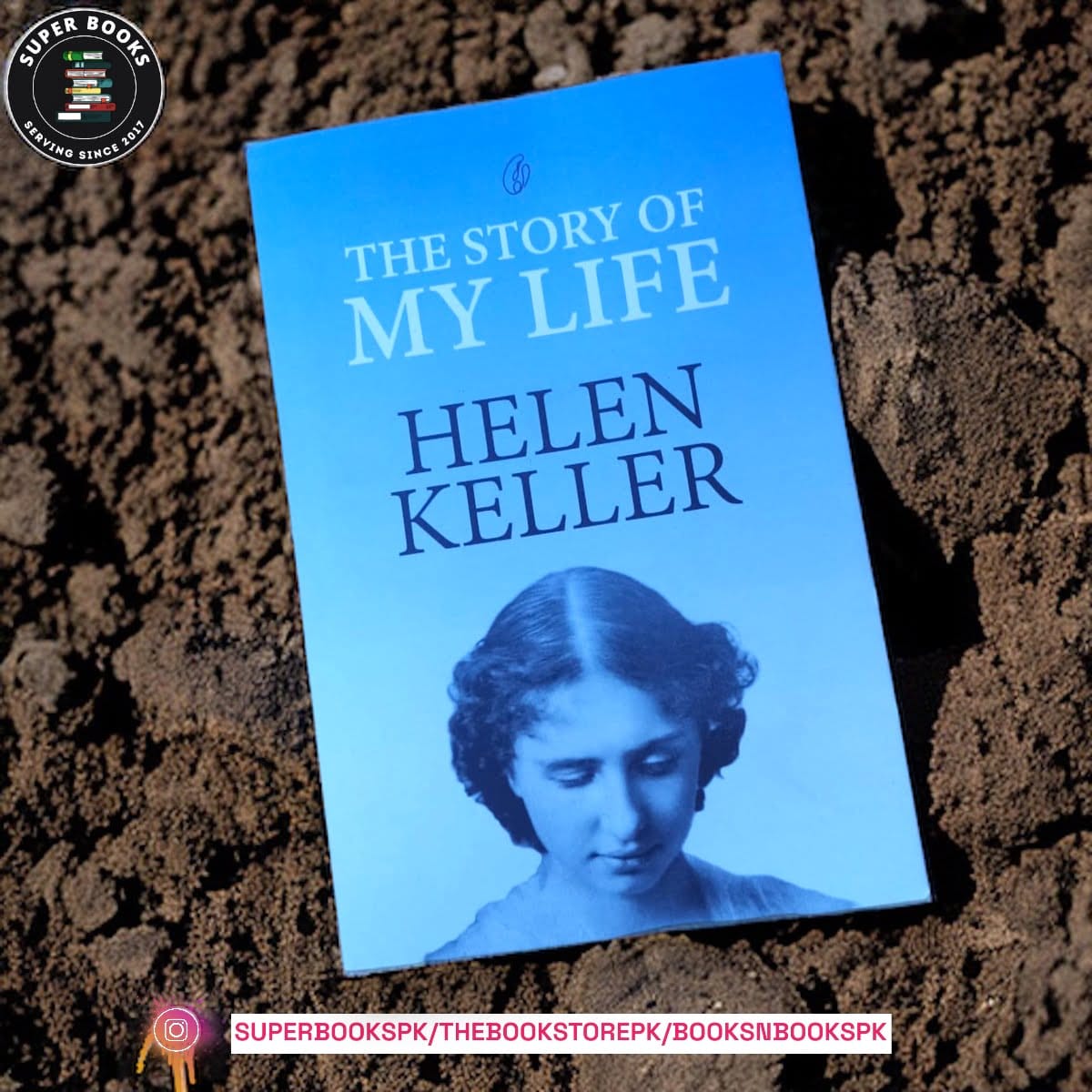Helen Keller Books: A Comprehensive Guide

Helen Keller, a name synonymous with resilience and the indomitable human spirit, left an enduring legacy not only through her remarkable life but also through her prolific writings. This comprehensive guide explores the world of Helen Keller’s books, delving into their genres, themes, impact, and the enduring lessons they offer readers of all ages. We will examine her autobiographies, essays, and other works, considering their literary merit, cultural significance, and lasting influence on readers worldwide.
Helen Keller: A Life in Literature
Helen Keller’s life story is nothing short of extraordinary. Born in 1880, she was struck by an illness at 19 months old that left her blind and deaf, effectively silencing her world. Yet, through the unwavering dedication of her teacher, Anne Sullivan, Keller learned to communicate, overcoming seemingly insurmountable obstacles. This triumph, a testament to human potential, forms the bedrock of her most famous work, “The Story of My Life,” and permeates much of her subsequent writing. Her story became a source of inspiration and a powerful symbol of hope for countless individuals facing similar challenges. Her books offer not just narratives but potent life lessons of perseverance, determination, and the transformative power of education.

The Story of My Life: A Foundational Autobiography
Published in 1903 when Keller was only 22 years old, “The Story of My Life” remains her most celebrated work. It chronicles her early childhood, detailing her experiences in a world devoid of sight and sound. The narrative isn’t steeped in self-pity; instead, it’s a vibrant testament to Keller’s spirit and her journey towards self-discovery and communication. The pivotal moment at the water pump, where she grasped the connection between the word “water” and the physical sensation, stands as a defining image of her transformation. The book also poignantly depicts her complex and deeply significant relationship with Anne Sullivan, whose unwavering guidance and innovative teaching methods were instrumental in Keller’s development. This compelling narrative explores not just the challenges but also the joys and triumphs along her path to self-expression. It highlights Keller’s intellectual curiosity, her thirst for knowledge, and her growing awareness of the world around her, highlighting the beauty she discovered even amidst profound sensory limitations. “The Story of My Life” transcends autobiography; it is a powerful exploration of the human spirit’s capacity for growth and achievement against overwhelming odds. The book’s enduring popularity speaks to its timeless themes of hope, perseverance, and the importance of human connection.

Beyond “The Story of My Life”: Exploring Keller’s Literary Output
While “The Story of My Life” remains Keller’s most well-known work, her literary contributions extend far beyond this single autobiography. She penned several other books exploring various aspects of her life, experiences, and perspectives. These works provide further insight into her thoughts, beliefs, and ongoing journey. These later works, often less biographical, explore a range of topics, offering a diverse perspective on the author’s worldview and engagements.
Genres and Themes in Helen Keller’s Books
Helen Keller’s body of work spans several genres, showcasing her versatility as a writer. While autobiographical narratives dominate her early works, her later writings include essays, philosophical reflections, and social commentaries. Several recurring themes run throughout her books:
Autobiographical Narratives:
The majority of Keller’s early books are autobiographical in nature, tracing her journey from infancy to adulthood. These narratives emphasize the profound impact of her disabilities and the transformative influence of Anne Sullivan. They frequently showcase her emotional development, intellectual growth, and persistent struggle to overcome social and physical barriers.

Essays and Philosophical Reflections:
Keller’s essays delve into broader themes, exploring topics such as social justice, spirituality, and the human condition. These works reveal her deeply held convictions and her concern for humanity’s well-being. They often offer insightful observations on life, expressing her views on social progress and the importance of understanding and inclusivity.
Social Commentaries:
Throughout her life, Helen Keller was an outspoken activist for social justice and equality. Her books frequently incorporate social commentaries, advocating for the rights of people with disabilities, women, and the underprivileged. These passages within her larger works demonstrate her clear-sighted and compassionate approach to social issues. She actively used her platform to promote social reforms and champion human rights, particularly for those facing societal disadvantages.
Helen Keller’s Writing Style
Keller’s writing style is characterized by its clarity, simplicity, and evocative imagery. Despite her lack of sight, her descriptions are vivid and engaging, painting powerful pictures in the reader’s mind. Her prose is both emotionally resonant and intellectually stimulating, engaging readers on multiple levels. The depth of her understanding and expression is remarkable, suggesting the power of human connection, learning, and determination. Her writing demonstrates the capability of the human mind to transcend the limits of physical experience.
The Educational Value and Life Lessons of Helen Keller’s Books
Helen Keller’s books hold considerable educational value, offering diverse and thought-provoking perspectives. They are valuable for several reasons:
- Inspiration and Motivation: Her remarkable life and unwavering determination serve as an inspiration, demonstrating that adversity can be overcome with resilience and a relentless pursuit of one’s goals. Her books offer hope and motivation for readers facing challenges, demonstrating the power of perseverance to achieve personal growth and overcome obstacles.
- Understanding Disability: Her books provide readers with insight into the experiences and challenges of people with disabilities, promoting empathy and understanding. Her works offer valuable perspectives on how disabilities can influence perception and interaction with the world, encouraging readers to challenge preconceived notions and develop empathetic understanding.
- Importance of Education: Keller’s works powerfully illustrate the transformative power of education, particularly for those from marginalized communities. Her experiences highlight the critical role of education in empowering individuals and enabling them to achieve their full potential, regardless of background or circumstance.
- Social and Political Awareness: Her writings provide insightful social and political commentary, raising awareness of social injustices and inspiring readers to advocate for positive change. Her works serve as powerful calls for social justice and equity, stimulating readers to become active participants in societal progress.
Cultural Impact and Legacy of Helen Keller’s Books
Helen Keller’s books have had a profound and far-reaching cultural impact, influencing literature, film, and social attitudes toward disability.
- Literary Influence: Her autobiographical works have inspired numerous authors, contributing to a richer understanding of disability and the power of the human spirit. Her impact on literary discourse is undeniable, with her work inspiring generations of writers and shaping perceptions of disability and resilience.
- Adaptations: Keller’s life story has been adapted into various theatrical productions and films, notably “The Miracle Worker,” which further cemented her legacy in popular culture. Her work has inspired many successful adaptations in various media, expanding its reach and ensuring her enduring legacy across different platforms.
- Awards and Recognition: Keller received numerous awards and accolades for her literary contributions and her social activism, recognizing her profound impact on society. Her achievements have been repeatedly recognized with numerous awards, further solidifying her place in history.
- Communities and Support Networks: Her books have helped create and sustain communities and support networks for people with disabilities, providing a sense of belonging and shared experience. Her legacy continues to empower those facing disability, with her books serving as sources of inspiration and promoting inclusivity.
Conclusion: The Enduring Relevance of Helen Keller’s Works
Helen Keller’s books continue to resonate with readers today, offering timeless lessons of hope, perseverance, and the power of the human spirit. Her works transcend their historical context, remaining relevant in a world that still grapples with issues of disability, social justice, and the importance of education. They remind us of the power of the human will and the transformative potential within each individual, regardless of challenges faced. The enduring legacy of Helen Keller lies not only in her achievements but also in the power of her words, which continue to inspire and enlighten generations. Her books are more than just historical documents; they are a potent testament to the human potential to overcome seemingly insurmountable obstacles.